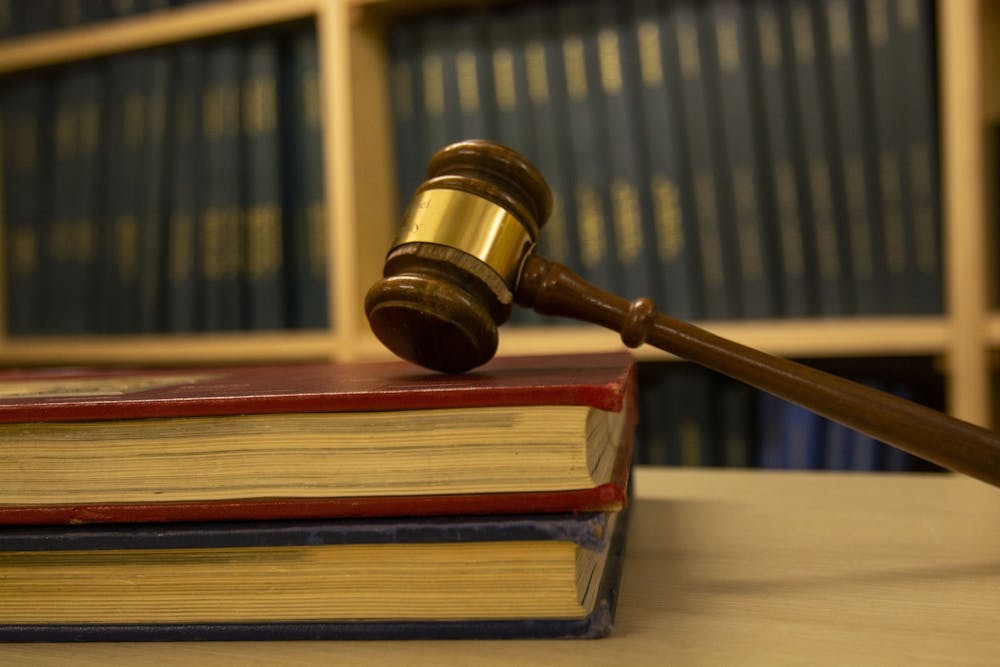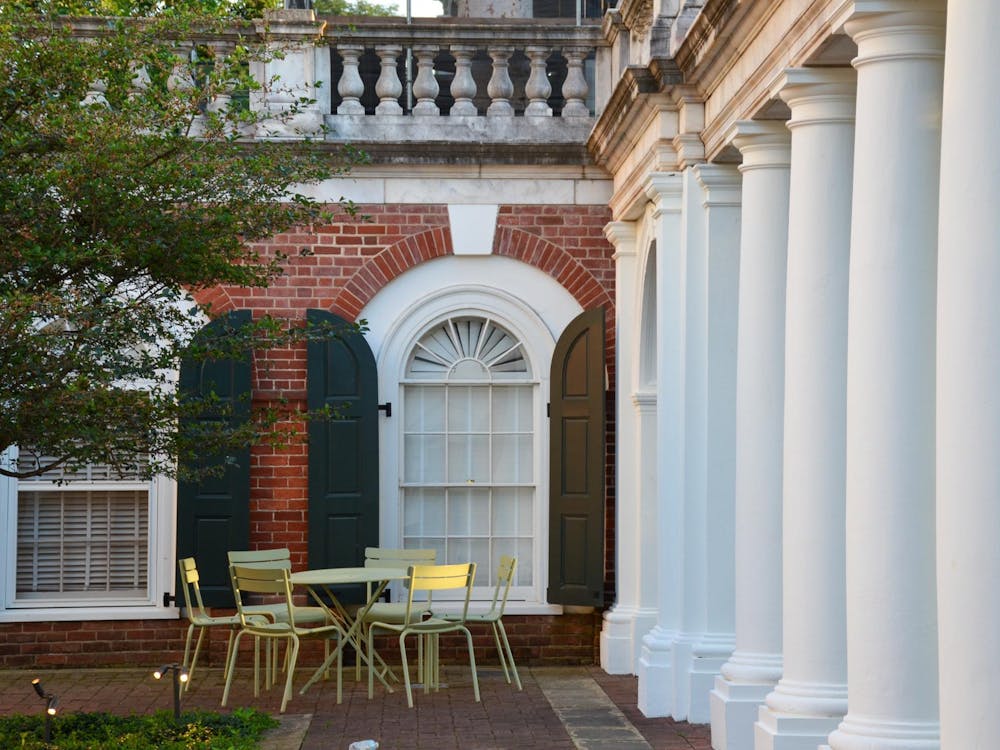The University Judiciary Committee introduced the University and Fraternity Panel at their general body meeting Sunday. The primary responsibility of the panel will be to adjudicate in situations where both a CIO — or other University-sponsored organization — and an Inter-Fraternity Council affiliated fraternity are alleged to have violated one or more standards of conduct at a joint event or activity.
The panel’s establishment is a response to events such as the I.M.P. Society and the Student Hip Hop Organization’s October 2018 party hosted in the Beta Theta Pi fraternity house. During the event, it was alleged that fraternity members violated the terms agreed upon previously between Beta Theta Pi, the I.M.P. Society and SHHO — resulting in allegations of racism and the policing of minority students.
At the University, IFC fraternities are governed and adjudicated by the Inter-Fraternity Council Judiciary Committee, which has its own set of standards and procedures separate from those of the UJC.
When creating the UFP, Shannon Cason, fourth-year College student and UJC chair, noted that it was crucial that both IFCJC and UJC would have representation throughout the trial, hearing and appeals processes.
“It's going to be collaborative,” Cason said. “To make sure that the IFCJC and the UJC feel comfortable adjudicating both bodies, and that they have sort of equal say in what's going on. If a situation like that happens again, then we have language and know how to deal with that.”
The panel itself will be comprised of both representatives of UJC and IFCJC — with each UFP trial panel consisting of three UJC representatives and three IFCJC representatives sitting as judges.
“We don't see any type of problems with the voting systems,” Cason said. “Because all the sanctions and deliberations are collaborative. We all work together.”
Additionally, UFP representatives from the IFCJC will undergo training with Chirag Kulkarni, vice chair of trials and third-year College student, at the start of their term in order to maintain procedural guidelines.
Also discussed at the general body meeting was upcoming Virginia legislation, including HB-104 concerning student code of conduct and HB-36 which refers to student journalists and the freedom of speech and press. Both bills passed in the House but have been referred to the Committee on Education in Health in the Senate. UJC regularly brings up upcoming state legislation in their “legislative review” portion of the meeting in order to gauge how potential new laws may affect the functioning of UJC.
“We wanted to look to see if there was any sort of upcoming things this year that might be applicable to us,” Cason said. “The first one's the student code of conduct — it's basically saying that every university has to have some sort of student code of conduct process within our system. And that's something that we already have in place.”
The University already upholds a student code of conduct through both UJC and the Honor Committee, which are both primarily student run organizations that can adjudicate in non-academic student affairs. UJC has jurisdiction to investigate any complaints filed against enrolled University students or student organizations that violate the Standards of Conduct set by the Board of Visitors, such as physical assault of any person on University property, unauthorized entry of University facilities or destruction of University property.
The next piece of legislation, HB-36 — which passed in the House Feb. 7 — states that student journalists at public institutions of higher education are afforded the right to free speech and free press, even when writing for school-sponsored media. HB-36 will not protect student journalists in cases of slander, libel, breaches of confidentiality or any other limitations already in place under the First Amendment.
Legislation like HB-36 gives UJC the advantage to use state law as leverage in a case where the accused is found guilty of violation.
“In terms of the UJC side of it, having exact definitions of what violates freedom of speech is good on our side,” Cason said. “Because, technically, if this becomes a law in Virginia, if someone does something that's an invasion of privacy or is slanderous against another student, then that provides us more context and evidence to adjudicate them.”







